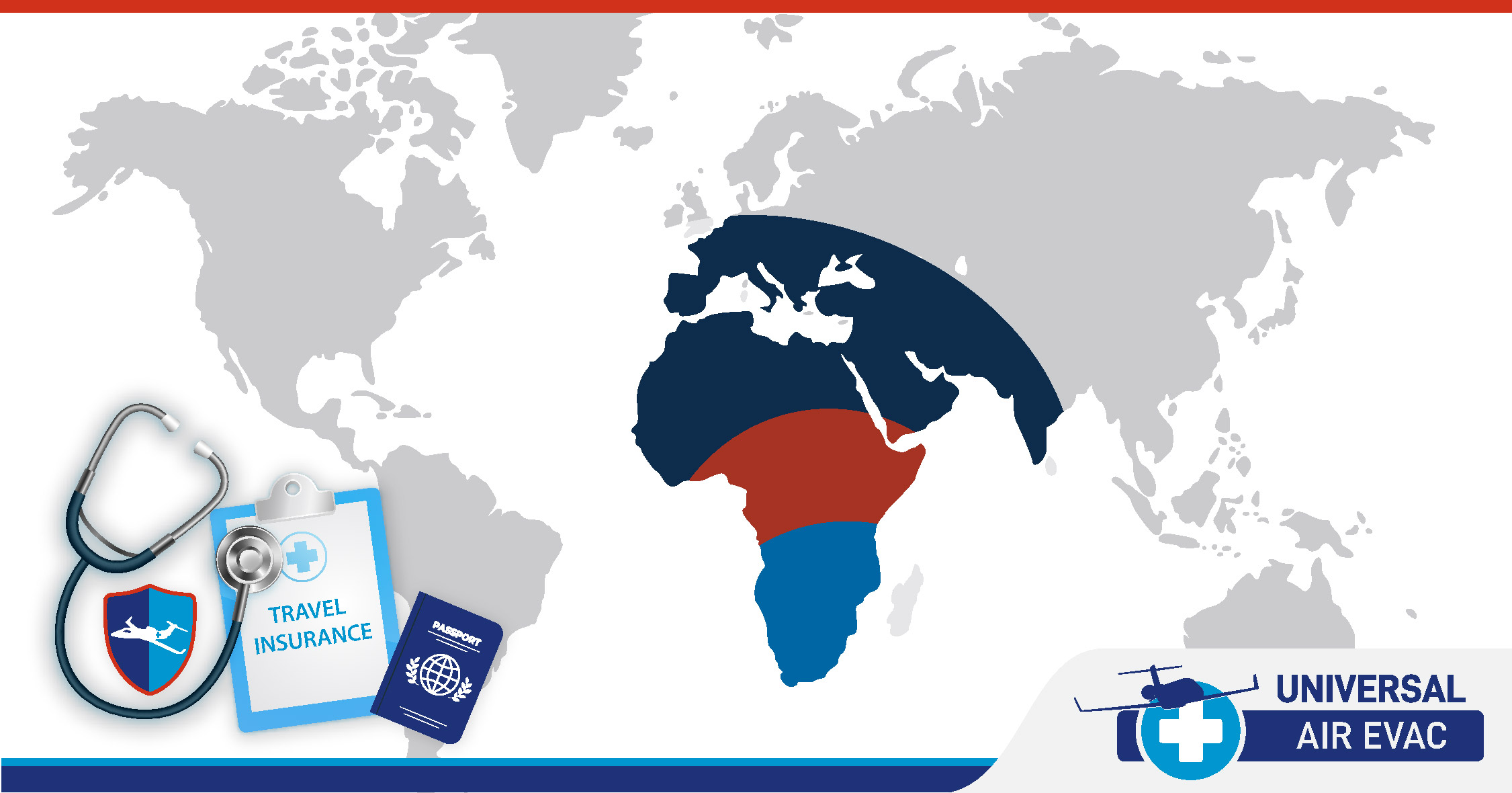Why Should I Have Travel Insurance that Covers Air Ambulance?

Travel insurance. Like our everyday home or car insurance, travel insurance can be seen as a grudge purchase for most people.
Consider the following, you are saving up for your trip and want to have that extra spending money to treat yourself abroad. So, the thought of setting aside a certain amount for insurance purposes can be a thorn in your side.
The fact is travel insurance is a crucial part of your travel plans. If you are injured or fall ill overseas, the cost of treatment and even repatriation could financially cripple you. And having travel insurance will cover you in this aspect and ensure that you and your family are protected should the worst happen.
But, does your travel insurance need to cover an air ambulance too? Is it necessary to make sure that you can get back to your home country for treatment?
The answer is yes, and we thought we would unpack why.
What is an Air Ambulance?
Before we get stuck into why you need to have an air ambulance on your travel insurance contract, let’s take a look at what it is.
An air ambulance service is a broad term that covers the overall use of air transportation, for medical purposes. It is used to move patients to and from healthcare facilities and accident scenes. It can also be used to repatriate patients to their country of origin for treatment there.
An air ambulance can be either fixed-wing or a helicopter and has a team that is specifically trained to provide comprehensive emergency and urgent care to the patient if needed.
What you can Expect from Travel Insurance?
So, what does travel insurance normally cover and is an air ambulance an optional extra?
Overseas medical cover is possibly the single most important part of a travel insurance policy.
These policies usually include:
- Emergency medical treatment costs usually include emergency and stabilisation hospital charges as well as ambulance fees.
- Travel and repatriation home following the medical treatment if you have missed your flight or cannot make your flights.
- The covering of additional transport and/or accommodation expenses for a close relative or friend who is travelling with you, as long as it's a reasonable amount.
- Travel to your home country with a medical escort (if medically necessary) should you be flying on a commercial airline.
- 24-hour assistance helplines which offer medical advice and guidance.
How Do I Ensure I am Covered?
While most travel insurance policies cover air ambulance and repatriation, some might just list it differently or in a separate clause.
While some insurers may add air ambulance to their medical policies, others will add it to their travel policies. However, there should be some mention of repatriation in the policy. If you are unsure or the policy terms appear unclear, contact the insurer directly to find out.
In some cases, people have found out that they do not have enough cover and have had to add additional coverage to their policy. Cover limits differ substantially based on your policy. Take the time to ensure that you have adequate coverage based on your travel plans.
This might seem like a lot, but medical expenses overseas can be surprisingly high, and repatriation is incredibly expensive.
What Could Impact the Policy?
The next question is, what could negatively impact your travel insurance policy? What do you need to avoid or be aware of that might cost you more?
You will need to have a conversation with your insurer, but in some cases, you might need to purchase additional coverage in these cases:
- Older travellers.
- Those with pre-existing medical conditions.
- Adventure travellers/backpackers.
- Humanitarian aid/voluntary workers.
- Cruise travel.
- Winter sports cover.
Pregnancy will also be needed to be declared to the insurer. You may need to have cover for both you and your unborn baby when travelling.
But, your travel insurance can be invalidated too if you fail to meet some basic standards.
This includes:
- Failure to declare any underlying medical conditions.
- Should your injuries be a result of alcohol or drugs.
- Travel against the advice of a medical professional or various authorities.
In these cases, you will not receive any repatriation benefits, nor medical support should something happen in another country.
The Bottom Line
Most travel insurance policies will cover an air ambulance and repatriation to your country. It is just important to check your policy first and have an open line of communication with your insurer. Should they not cover an air ambulance, it is highly advisable to shop around to find one that does as these costs can soar, and you do not want to be left stranded in a country needing medical care.

